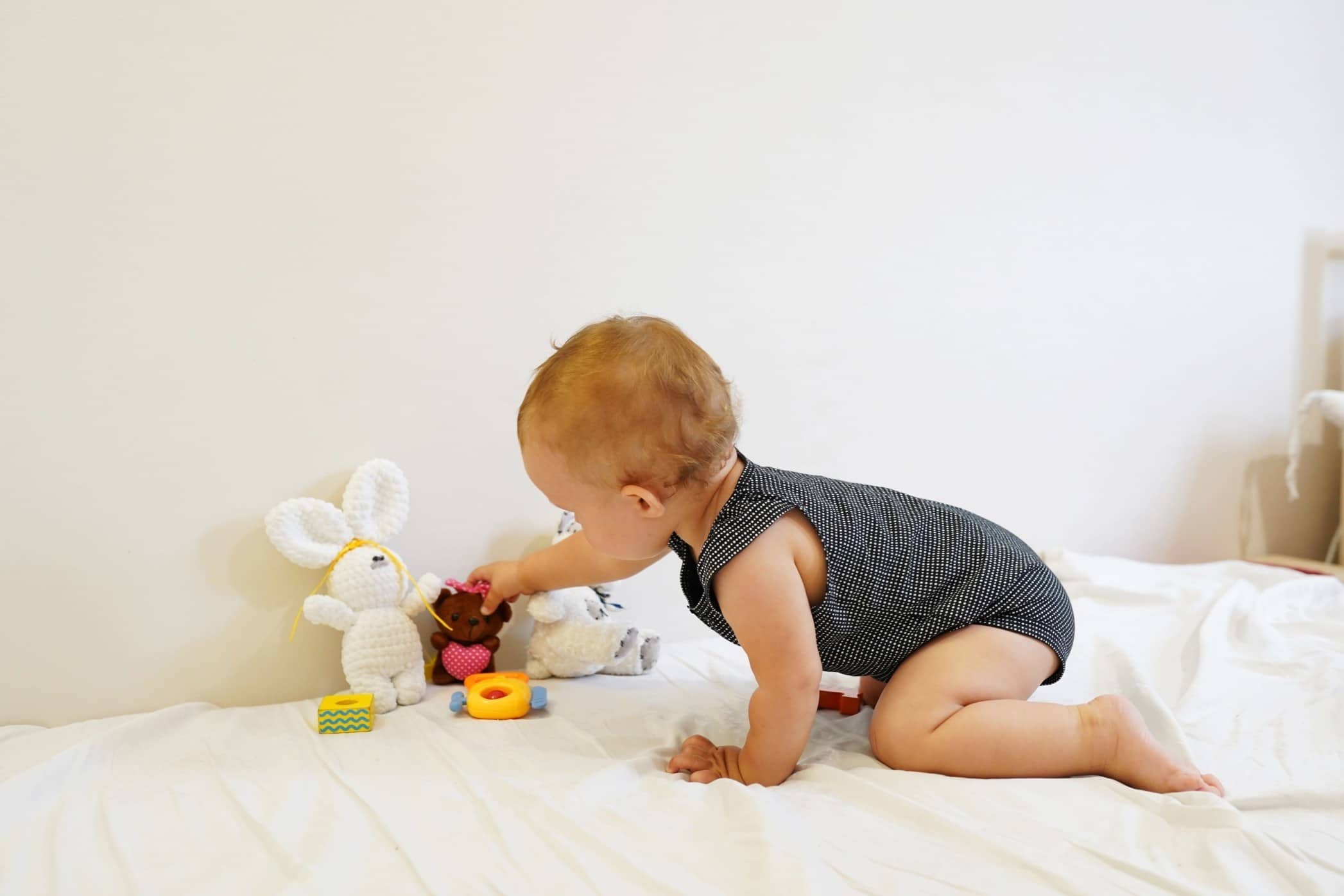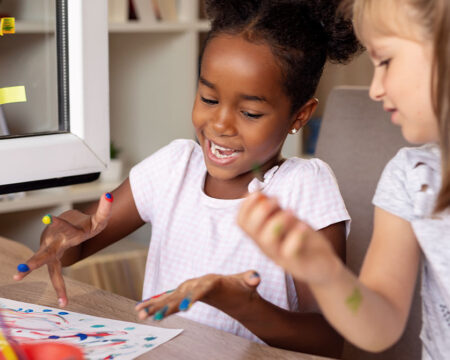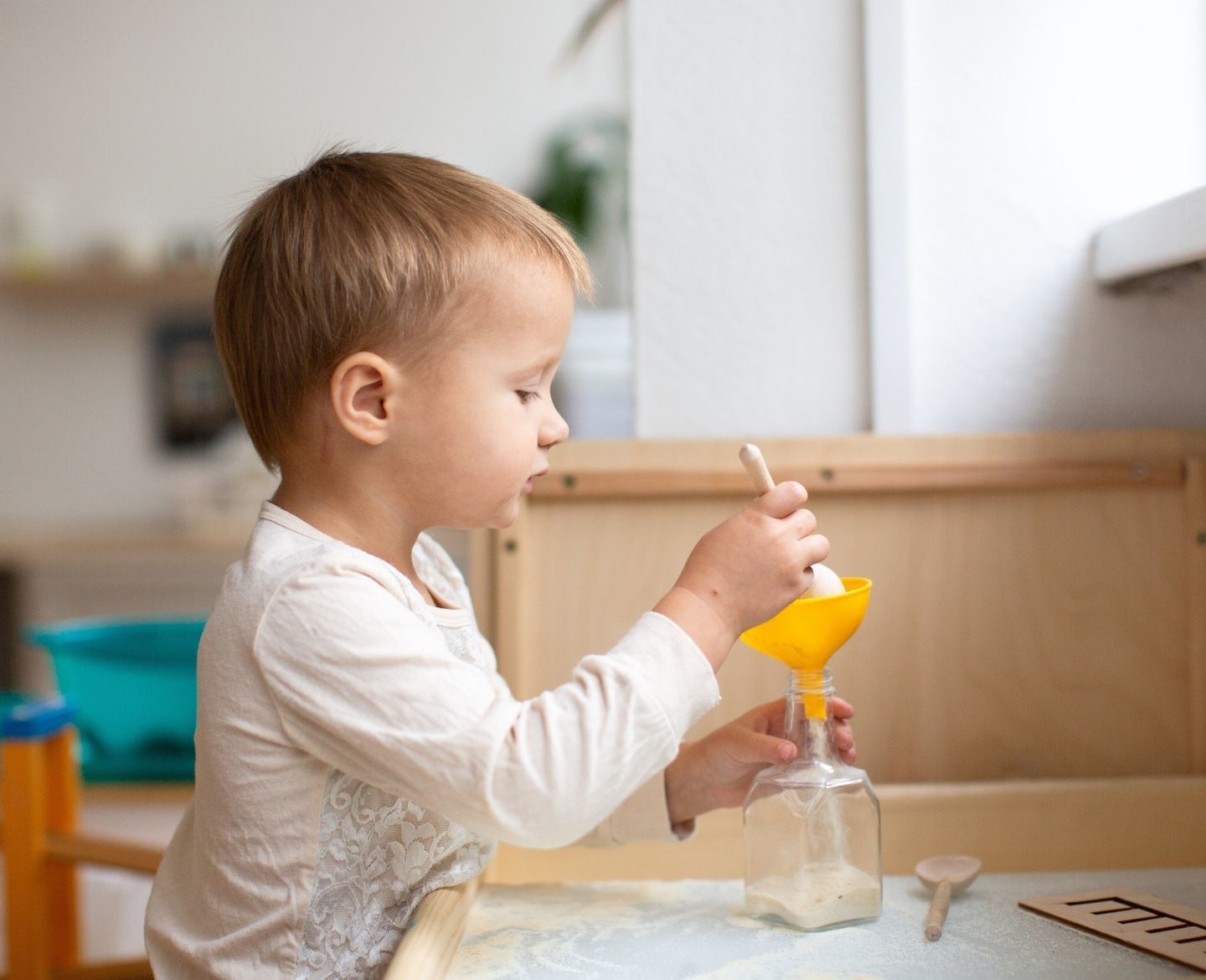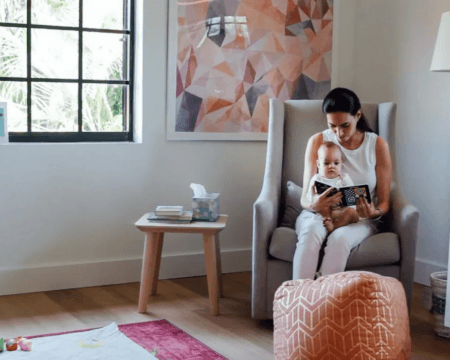6 Montessori activities for babies—no new toys required
Here's how to entertain a baby without buying lots of stuff.

@nastyatkachenko19 / Twenty20
During these long days when so many of us find ourselves at home looking for things to do with our little ones, it can sometimes feel difficult to find new, stimulating and developmentally appropriate activities. Who knew finding ways to entertain a baby could be such a challenge?
The good news is, there are plenty of fun ways to stimulate your baby’s learning and development without buying lots of new toys (unless you really want to!).
Here are 6 Montessori-inspired activities for babies that help encourage your little one’s development.
Reading
Best for: Any age, starting from birth
Skills: Language and social/emotional development
The best books for babies feature simple, realistic images and very few words, but you can soon move on to board books with more words and detailed pictures. Montessori educators choose books that gradually build from the simple to the complex, adding challenges and layers as children develop.
By making it a daily ritual to read to your baby—starting from when they’re brand-new newborns—your little one will come to associate reading with coziness and feelings of security, while growing a lifelong love of reading. Reading is also a great way for your partner to bond with your baby from the very beginning as well.
Tummy time sensory exploration
Best for: 4-7 months, with supervision
Skills: Gross and fine motor skills
Sensory activities are a great way to entertain a baby—and there are so many ways to engage your baby in sensory play, you never need to run out of ideas. Here are some easy sensory activities you can do with your baby during tummy time:
Fill a Ziploc bag with a few dollops of paint, water with a little food coloring in it, or even stale Cheerios. Seal the bag well with tape along the edges and then use painter’s tape to attach it to the floor. Invite your baby to play on their tummy as they touch the bag to explore the different textures, sounds and colors. Your little one will have so much fun exploring these new textures with all of their senses as they integrate and connect what they hear to what they are touching. If you’re feeling brave, you could even try a cookie sheet with a small layer of water for splashing fun! Be sure to add a towel or blanket underneath for easy cleanup.
Clap and stop song
Best for: 6 months and up
Skills: Social/emotional learning, gross and fine motor skills
In your best singing voice start to sing, “Clap and clap and clap and STOP! Clap and clap and clap and STOP!” Clapping when you say clap and stopping each time you say stop, pausing before the next line for your little one to absorb and react. In time your baby will begin to repeat with you, and will show signs of excitement to practice stopping. This game is adapted from Nicole Kavanaugh of The Kavanaugh Report, and will prepare your baby for the toddler years when there are times they’ll need to “stop” quickly. This activity will also help them to further develop their ability to do things in a sequence.
Reach and pull game
Best for: 6 months and up, or a baby who is sitting well unsupported
Skills: Gross and fine motor skills
Use painter’s tape to attach objects on a wall at a height just above your little one’s head when seated. This can be a couple of their favorite small toys like rings, puzzle pieces, animal replicas or even empty toilet paper tubes with scarves stuffed inside. Your baby will be enticed to touch, grasp and pull down the toys. When they reach their arms up, they are challenging their balance and developing their core muscles.
Couch surfing for toys
Best for: 9 months and up, or after baby is pulling up independently to stand
Skills: Gross motor skills and social/emotional learning
Once your little one is pulling successfully to a stand, you can encourage them to cruise by placing a few favorite toys along the couch and watching them work their legs and body to move to each toy. As they go they’ll likely drop toys along the way, or leave them behind for the next round. Replace any that get dropped and watch as they go back and forth between their toys, enjoying them at this new height! If space allows, your little one can practice cruising along a pull-up bar on the wall. Hang photos of family members along the way for them to begin recognizing.
Open-and-close treasure basket
Best for: 9 months and up
Skills: Fine motor skills
Go on a treasure hunt around your house for safe, easy-to-open containers and boxes (think plastic food containers, a ziploc pouch, a jewelry box with a clasp) and place 5 to 6 into a basket for your baby. These objects will encourage your little one to pick them up to explore and dump, before returning them to the basket. Your baby will learn how to manipulate the objects by opening them—and eventually closing them—with their hands. When your baby is a little older you can add small jars with twist-off tops to rotate into this perennial favorite.


